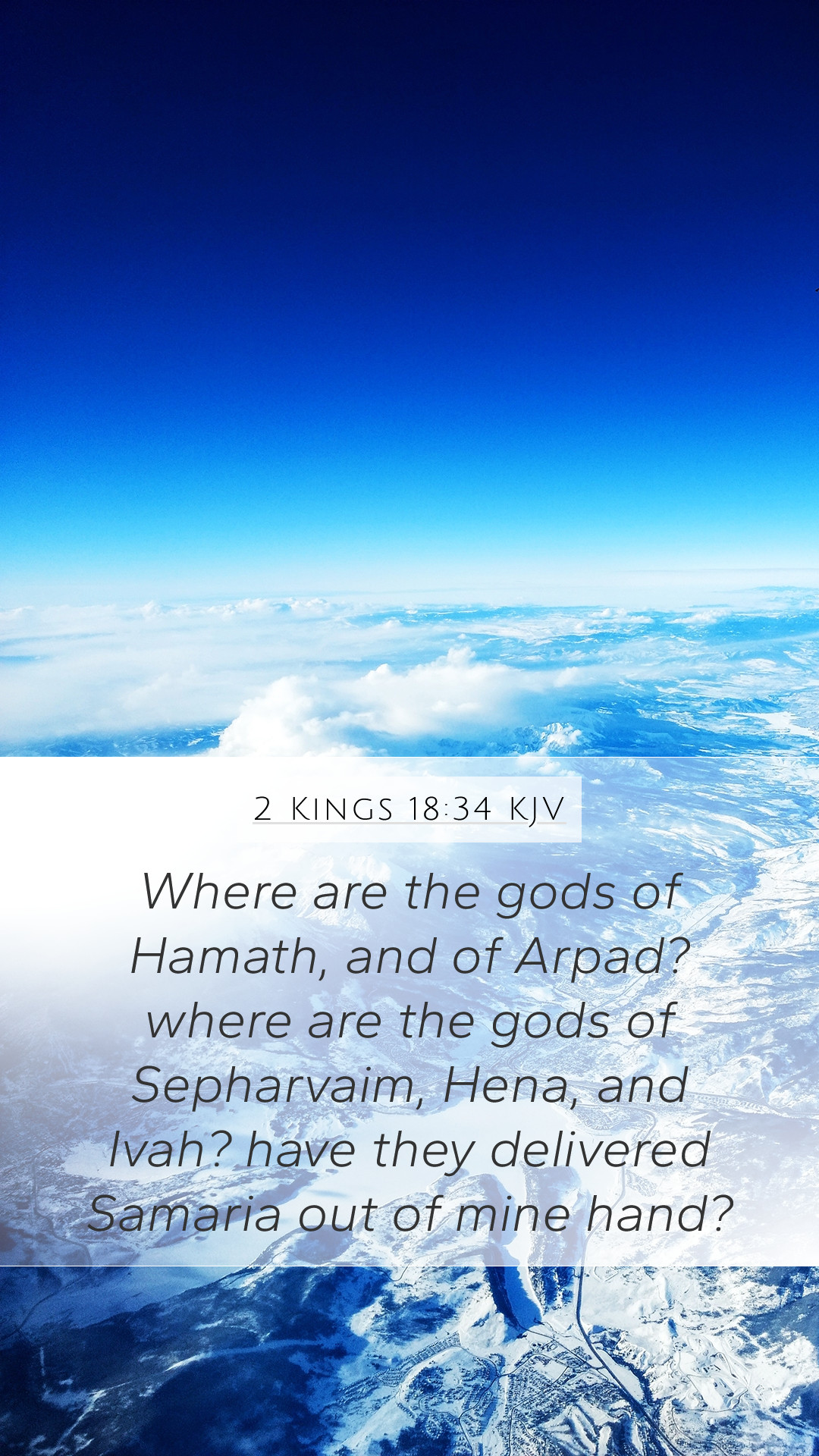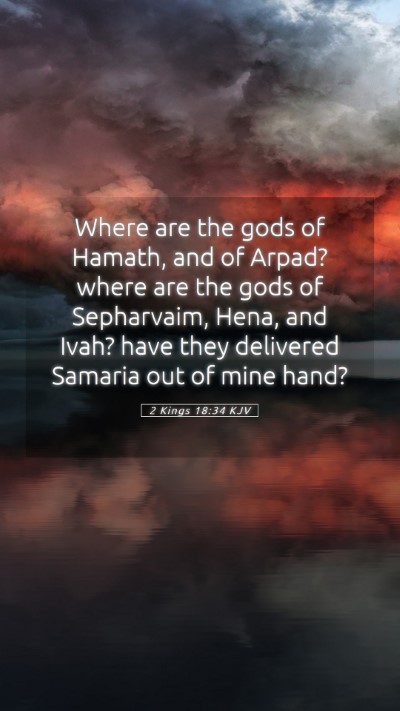Old Testament
Genesis Exodus Leviticus Numbers Deuteronomy Joshua Judges Ruth 1 Samuel 2 Samuel 1 Kings 2 Kings 1 Chronicles 2 Chronicles Ezra Nehemiah Esther Job Psalms Proverbs Ecclesiastes Song of Solomon Isaiah Jeremiah Lamentations Ezekiel Daniel Hosea Joel Amos Obadiah Jonah Micah Nahum Habakkuk Zephaniah Haggai Zechariah MalachiVerse
2 Kings 18:1 2 Kings 18:2 2 Kings 18:3 2 Kings 18:4 2 Kings 18:5 2 Kings 18:6 2 Kings 18:7 2 Kings 18:8 2 Kings 18:9 2 Kings 18:10 2 Kings 18:11 2 Kings 18:12 2 Kings 18:13 2 Kings 18:14 2 Kings 18:15 2 Kings 18:16 2 Kings 18:17 2 Kings 18:18 2 Kings 18:19 2 Kings 18:20 2 Kings 18:21 2 Kings 18:22 2 Kings 18:23 2 Kings 18:24 2 Kings 18:25 2 Kings 18:26 2 Kings 18:27 2 Kings 18:28 2 Kings 18:29 2 Kings 18:30 2 Kings 18:31 2 Kings 18:32 2 Kings 18:33 2 Kings 18:34 2 Kings 18:35 2 Kings 18:36 2 Kings 18:37

